Georgey-Dear
by Tetman Callis
The new girl at school, one Isabel, arriving mid-semester at Green Meadow High in a Bailey High letter jacket, aviator glasses, baggy pants and baggy shirts, her voice creamy, warm and smooth. No earrings gold-hooped or pearl-dropped, no bracelets bangling; rather, a wristwatch on a stretch-link band and a thin silver necklace with small crucifix the accouterments of this dark-haired girl who wears no makeup, no sticked-on glisten to full red lips; in her face the self-containment of an Etruscan goddess inscrutable, face framed by straight hair parting in the middle to reach the shoulders of this teenager gaining unfashionable weight.
Dark-eyed Isabel eyed by George, lately of Penny and George, now solely of George, George of blue eyes and Chemistry class and Choir; tall pale boy, fifteen-thin with round, open face and gold wire-frames, slight overbite, khaki windbreaker jacket. Blonde hair short in military style, sneakered feet scuffing along in adolescent fashion, pack of illicit cigarettes hidden upon his person; sophomore George, wise fool toeing a line between too cool and childhood, faced with a mouth too smart and flowing over with unpracticed wit, talking too much but ever-ready to be silenced by a kiss.
Not often so silenced.
Silenced so and recently so by Penny, lately of George and Penny, now of the free and easy again, said to be making time with a soldier-boy; Penny, frosh but senior-tall, red-headed fresh girl several levels sexually more explicit than the George she had attempted to lay before tiring of trying to teach him how to kiss, not to mention the hints she dropped along the way regarding the brushing he might have done to the flavor of spaghetti from off his overbite before dropping by her house to be silent in fits and starts, with time between bussing lessons occupied by gossipy talking of all the doings at Green Meadow High; the goings-on in classrooms and hallways, bathrooms, ball-fields and -courts, and the choir wherein Penny and George and twenty-seven others sing—the Green Meadow Larks.
#
Chemistry class in the afternoon, fidgety kids ready for special events, today’s a basketball game breaking the routine of a routine day, Mr. Rubicon, teacher extraordinaire, saying, “Okay, all you with your tickets, go straight to the gym next period for the faculty/exes game, and all you—”
“What if you don’t got a ticket,” a boy holding a tumbler says.
“All of you who don’t have tickets—” Mr. Rubicon says.
“Are you playing, Mr. Rubicon?” says a girl at the retort rack.
“—I have tickets here, they’re fifty cents each, and yes,” Mr. Rubicon says, “I am playing.”
“Isabel,” says George to the new girl in the Bailey High letter jacket, “Are you going to the game?”
“Mr. Rubicon,” says a boy running water at the stainless-steel sink, “I didn’t know you could play basketball.”
“I’d like to go,” says Isabel to George, “But I don’t have the money.”
“Of course he can play,” says the retort girl, “He played for Green Meadow when he went to school here.”
“I’ll loan you the money,” George says.
The tumbler boy says, “Mr. Rubicon, you were a student here?”
“Have you been asleep all year?” says the retort girl, “Everyone knows Mr. Rubicon went to school here.”
Isabel says, “That would mean paying it back.”
“He’s not everyone!” comes a boy’s voice from across the room.
“I’m not everyone,” says the boy with the tumbler, putting his tumbler down on the counter next to the stainless-steel sink.
“You’re not anyone,” says the boy at the sink.
“Then I’ll just give it to you,” George says, “As a favor.”
“Screw you!” says the de-tumblered boy.
“Language!” says Mr. Rubicon, saying, “Everyone, get all your equipment rinsed, dried, and put away.”
“No,” Isabel says, “No favors of money.”
“Take your seat, Michael,” Mr. Rubicon says.
“Mr. Rubicon, sell me another ticket,” George says, “I got a friend.”
“He’s got a friend,” says the girl at the retort rack.
“You’ve got a friend . . . ,” sings the boy at the stainless-steel sink, “Here, give me your tumbler,” he says to the girl at the retort rack.
“Isabel, here,” George holds out a ticket.
“You got to roll me . . . ,” sings the girl at the retort rack, “Get Isabel’s, too,” she says.
“No,” says Isabel to George. She shakes her head and won’t take the ticket, turns to take her tumbler to the sink.
“Tumblers, please, everyone, thank you,” says the boy at the sink.
“You going to the game?” says someone in the back of the room.
George watches Isabel walking away from the held-out ticket. He waits a moment, crosses the room to her desk, sets the pink ticket down on her stack of schoolbooks. He turns and does his own walk-away.
“You better show up so I’ll have someone to talk to,” Isabel says to his back.
#
Up he shows and sees her sitting on gymnasium floor, in sideline corner at the exes’ goal-end (first half), away from the bleachers crowded with students. She sits cross-legged, sketchpad in lap. George sits beside her, cross-legging down.
“Hi!” he says.
“Hi,” she says. She smiles, her smile rare and always the same, tempered, turning inward, as though she knows a secret.
“You showed up,” she says.
“Of course,” he says, smiling his always bright-open smile, his face-scruncher top-heavy with maxillary teeth, a sight of no pleasure to George. He’s seen it in snapshots, sideways in a mirror once or twice, underlining a nose that to George looks as though God got halfway done with his Art project when the bell rang, so he finished up real quick by sticking a knob on the end before hurrying down the hall to Biology class.
George cranes his neck to see the sketchpad. “What are you drawing?” he says.
“Just . . . ,” Isabel pauses, nods to the bleachers, “Them.”
“Cool!” George says, “I didn’t know you draw. Let’s see.”
She shows him. He looks at her page, at the students in the bleachers.
“Oh,” he says, “See the red-head? That’s Penny, she was my girl.”
“Was?” says Isabel.
“Yeah,” George says, nods, “She dumped me for some G.I. just last week.”
“That’s too bad,” says Isabel, not like she means it and not like she doesn’t.
“Yeah,” George says, “Oh well.”
“Do you still like her?” says Isabel, working at the sketch on her pad.
“Not much,” George says, “What do you think?”
Isabel shrugs, “I’ll take her out of the picture.”
“No,” George says, “Don’t do that, then it wouldn’t be true.”
“It’s as true as I make it,” Isabel says, and looking at George she says in a matter-of-fact, “It’s not what’s in it that matters, it’s how does it all fit together.”
The game takes the remainder of the school day, George and Isabel staying to the end, him talking, her sketching. After, he ditches Choir practice to walk her to her home.
“I’m going to my grandmother’s house today,” she says.
“Oh,” George says, “Little Red Riding Hood.”
“Don’t say that,” Isabel says, “It’s not funny.”
“Sorry,” George says, “How about,” heartbeat pause, “Small Communist Motorcycle Thug.”
“Very clever,” Isabel says.
Isabel’s grandmother’s house turns out to be the house next door to the house where George’s pre-Penny girlfriend, Virginia, a dark-haired beauty brooding in hip-huggers always threatening abdication, had lived until she came down with a pregnancy unassisted by George, and she and family moved away. George tells Isabel the story as they sit a spell in Grandma’s front yard.
“Did she have the baby?” Isabel says.
George shrugs a shrug and says, “I don’t know, they moved away.”
“Of course,” says Isabel looking at the yellow grass of Grandma’s yard, small green shoots just beginning their upshooting thrust through last year’s chaff.
“Look,” she says.
“Spring soon,” George says.
“Will you get in trouble for missing Choir?” says Isabel, opening her sketchbook, digging around in her purse for a pencil.
George says, “I don’t care, I’d rather be with you.”
“That’s sweet,” Isabel says, “I’m going to draw you, you don’t mind?”
#
George stops going to Choir, Penny-tainted training to sing on command now superseded by the fresh new passion of green-shooting spring days and Isabel to walk home, Isabel to talk with, Isabel to think about.
The second day he walks her home they sit a while inside her house, down narrow stairs into a dark-paneled den, sounds of family about: mother, stepfather, brother and an uncle and maybe a baby, too. There is a crib in the den but never the sight of the tot.
Third day they stand in the street outside her house, talking three hours while leaning on a car, George smoking cigarettes.
“You’re one of the few people,” Isabel says, “I can open up to. We might get a good, deep friendship.”
“Cool!” he says, this cheerful lad, talkative much regarding school. Political too, a Texas Democrat by inculcation, talking of the world and of the end thereof, Apocalyptically Protestant George by reverend immersion baptized, chatting of the end of time with deeply Catholic Isabel, who boycotts grapes. George likes grapes. Isabel sketches George as he smokes a long, filtered cigarette.
“Don’t let my mom see that,” he says.
“I haven’t met your mom,” says Isabel.
She confesses deep hatred of her father.
“He left a long time ago,” she says, “I don’t know where he is but I hate him.”
George says, “That’s too bad.”
“It’s caused me to adopt,” Isabel says, “Other male relatives as father-figures.”
George smokes on his long filtered cigarette.
“I’ve tried to kill myself twice,” she says, “Because of my stepfather.” George says, “You have?”
“Yes,” Isabel says, her honey voice smoky, “Let me show you,” Isabel pulling up the sleeves of her Bailey letter-jacket.
“This one I did with a screwdriver,” she says of the short ragged scar across a wrist, indicated by fingertip, “When I was six.”
She lets that sleeve down and mirrors the pointing gesture, her other wrist showing a thin pale line.
“And this one I did with a razor,” she says, “When I was twelve.”
George says nothing, knowing naught to say.
“And it gets worse,” says Isabel, pulling her sleeve down, “I’ve been a friend of the Devil’s for nine years now.”
George lights another cigarette.
“I don’t understand,” he says.
“You know—the Devil,” Isabel says, “I feel like he’s with me right here, right now.”
“I’m with you now,” says George, “Do you mean me—you don’t mean me.”
“No, I don’t,” Isabel says,
“No, I don’t mean you.”
“Well, I don’t—” says George to Isabel’s saying, “It’s probably not true.”
#
George stops by Ernie’s on his way home from Isabel’s, Ernie the last duck-tailed greaser in America, with headful of shiny black slick-back do. Ernie quit school that winter, halfway through his third sophomore year dropping out to shack up with the love of his life: the repair of motorcycles. This pleasant evening Ernie has turned the gently sloping concrete drive of his parents’ house into an ad hoc repair shop, Ernie sitting enraptured among the parts.
George approaches.
“Hey, Ernie,” he says.
Ernie looks up, saying, “Hey, Squidge,” and sharing the carbonized grease on his hands with a mechanic’s quondam red rag, stands up.
“What’s up?” Ernie says.
“Coming home from a girl’s house,” George says.
“A girl,” Ernie says, “Hey, dude! Bum a butt?”
“Sure,” George says, pulling out his paper pack of cigarettes, shaking two out to give one to his friend, smoke one himself, lighting them both.
Ernie smokes and he gestures at parts at his feet.
“Check out this bike man—Kawasaki,” he smokes, “Gotta grind the valves.”
“Cool,” says George, “Say Ernie, man, you been around.”
“I been around, Squidge,” Ernie says.
“Let me tell you about this girl,” George says, “See what you might think.”
George tells. It takes another cigarette apiece.
“Sounds like you got her hooked,” Ernie says.
“How can you tell?” says George.
“Look, it’s like this,” Ernie says, “She told you about that Friend of the Devil stuff, not somethin somebody tells just anybody, and the stuff about her tryin suicide. It’s because she trusts you and if she trusts you, she likes you. You like her?”
“Think about her all the time,” says George.
“Hey, Squidge,” Ernie grins, “You Romeo, man.”
“It’s kind of scary,” George says.
“Aw, man,” Ernie says, “Don’t be scared,” and he sits, tinkering again with the vivisected motorcycle, saying, “She’s just a girl.”
“She’s not,” George says, “No ordinary girl.”
“You said it, man,” Ernie says, frowning upon an unrecognized part, “Friend of the Devil—not every day you meet one of those.”
#
Saturday: George rolling out of bed and padding pajama-clad into homey kitchen to find himself in his mother’s cross-hairs with sleep still in his eyes.
“Penny called,” his mother says from her post by the sink, “She says Mrs. Busoni wants to know why you quit the school choir. And so do I.”
George opens his mouth but he doesn’t stand a chance.
“Oh,” his mother says, “It doesn’t matter,” she dries her hands on a limp gray towel, “I don’t know why I ever bothered even having you.”
George says nothing and looks at the floor.
“Do you hear me?” says his mother.
“Yes ma’am,” he says.
“Now eat your breakfast,” she says, “And don’t even think about turning the TV on.”
George mumbles, “Yes ma’am.”
“Quit mumbling!” she says and says, “There’s a Choir practice this afternoon, right?”
“Yes ma’am,” George says.
“That’s what I thought,” says his mother, saying, “You best better plan on your being there.”
George says, “Yes ma’am.”
“Now go get dressed,” she says, “And don’t take forever to do it.”
“But what about my breakfast?” George says in a voice at least two sizes smaller than his actual size.
“Don’t. Talk. Back. To me,” says his mother, saying, “What did I just tell you to do?”
“Yes ma’am,” George says, returning to his room with its window and bed and chest of drawers, straight-backed chair and closeted clothes, bookcase, games, table lamp, nightstand and detritus of childhood, George shutting the door behind him, looking out his window. He takes his Scout pocketknife off his nightstand, unfolds the blade and makes to slit his wrists. The blade is dull. George breaks the skin of one wrist, then stops. Later the wrist throbs and itches, red-scabbed and swollen. George wears long-sleeved shirts several days.
#
Choir practice this Saturday afternoon is none too fun at start, what with the morning at home and being forced to go and his voice changing but Mrs. Busoni, skilled teacher of high school choir, can make a grouply muchness from much individual meagerness, George’s not the only occasionally flat-footed voice in the mix.
George and Penny don’t speak, though she gives him a knowing look, a haughty look, a look to protect herself. He returns what he thinks is a look of anger; in truth much closer to a look of sullen hurt.
Soon they are singing, Penny and George and the twenty-seven others, and Everything is beautiful, in its own way . . . .
#
George sits at his window Saturday night, looking out at suburban streets where not much is happening, ticky-tack houses and only so many persons per square. He thinks of Isabel and when he is through, he thinks of Isabel. He has stopped by her house twice this day, once on the way to and once on the way from. Neither time is she home, Isabel’s brother says, telling George at the door where said brother stands wearing what looks to be eye makeup. George has called Isabel twice this evening but neither time has she been home, her uncle tells George over the phone. Uncle could have been naked for all George knew.
George plans to ask Isabel to go steady, first chance he gets.
He comes within one minute of getting that first chance, afternoon of the very next. Already he has called her once this sunny Sunday afternoon and they have telechatted a bit before he has to finish his chores. Once done, he’s going to call her again, but he’d really rather see her.
“Mom?” he says to his mom in the living room of her house.
“Yes, dear,” she says from her upholstered plush rocking chair, “What is it.”
“Can I go over to a friend’s house?” he says.
“Can?” she says, coffee cup in hand, “Can?” she says, looking him up and down, up down and through where he stands before her, “Your legs aren’t broken, are they?”
“No ma’am,” says George, growing smaller.
“Well?” says his mom as she rocks.
“May I?” George says.
“What friend,” says his mom.
“Isabel,” says George, “She’s a girl I know from Chemistry class.”
“Are your chores all done?” says his mom.
“Yes ma’am,” he says.
“They better be,” she says.
“They are,” he says.
“You better not be lying to me,” says his mom.
“I’m not,” he says.
“Don’t you sass me!” says his mom, stopping her rocking, clutching her cup.
“Yes ma’am,” says George, smaller still, “I mean, no ma’am.”
“Oh shut up,” says his mom, rocking on, “Okay, you can go.”
“Thank you,” says the teensy George.
“Don’t you be late for supper,” says his mom.
“Yes ma’am,” George says, “I mean, no ma’am, I won’t.”
George walks the few blocks to Isabel’s house as quickly as he can. She is home, and the two young likers stand outside, leaning against the car of Isabel’s uncle while they talk, George smoking while Isabel shows him her latest, Isabel sketching while George tries to tell her how it feels to hit the high notes of the “Unchained Melody,” but words fail him. Set to ask her to go steady, time fails him or he it as the words are about to tumble down his tongue when Isabel’s mother appears at the door to call, “Isabel, time to come in for supper!”
“Okay!” Isabel calls in response, then to George, “Gotta go,” and she’s gone.
George returns home, where not even television can keep him from thinking about Isabel all evening long.
#
Monday in Chemistry class, amid the Bunsen burners and reductive reagents, while reactions take place in sparkling tubes, George tells Isabel, “Isabel, I think I’m going to drop this class.”
“Why?” says Isabel.
“I’m just not doing very well,” George says, “I don’t think I’ll even get a C this six weeks.”
“Oh, don’t quit,” says Isabel.
“Why not?” says George with a careless air of savoir-faire, “After all, all the time my mom is telling me what a quitter I am.”
“George,” says Isabel, “You’re only a quitter if you quit.”
George thinks about this for the rest of the day. In fact, for the rest of his life, but that’s jumping ahead. He walks with Isabel to her house after school. They lean on the usual as usual.
“What do you think about going steady?” he says.
“Do you mean in the abstract?” she says.
“No,” he says, his voice curving in surprise around the “o” part of “no.” “I mean, with me.”
“Why,” says Isabel evenly.
“Why?” George says, tone rising like a pop fly.
“Yes,” Isabel says, “Why—simple question—why do you want to go steady with me.”
“Um,” says George, fishing in a pocket for his cigarette pack, “Well,” he says, finding the pack and pulling it out, “I guess just as,” he says as he taps from the pack a cigarette, “I want to be more secure with you,” says he and he sighs. He lights the hard-earned smoke, takes a puff, and says, “All I need is another girl running off on me.”
For an hour they discuss this steady business, this George’s insecurity, his serious and sensitive side, touching lightly, sparingly, as though for spice, on the hatred and bitterness locked inside the mystery of this girl Isabel come over from Bailey in the middle of the semester.
“I don’t want to push something on you you don’t want,” George says, “But I do want to go with you I guess as a symbol of our relationship I mean you can read me pretty well and you got a better understanding of me than just about anyone else but I’m very torn apart inside because I want you to go with me but on your own free will.”
“I’m going to leave the decision up to you,” Isabel says as she puts the final touches on her latest sketch, “But I do think you’re rushing things.”
#
George sits at his window that night, looking out, ruminating, chin on fist. He wants to know if he loves Isabel. He wants to know what love is. He wants to know if he’d know it if it screamed in his face. He wants to get a good grade in Chemistry class, feel excited about Choir again. He looks at his closed bedroom door, looks out his window, sings quietly, Oh, my love, my darling . . . .
Next morning, George stops by Ernie’s on the way to school. Ernie is on the drive tinkering as he listens to George tell his story.
“Squidge, my man,” Ernie says, “She might be playin hard-to-get.”
“You think so?” says George.
“I dunno, man,” Ernie says, “Fleamales, who can figure, I dunno.” He picks up and peers at a part to a disassembled two-stroke engine, “I do know I don’t know what the fuck this is or where it goes.”
#
George speaks with Isabel after school regarding the pressing matter of steadyship.
“No,” she says, looking away from him, “I still don’t think we should.”
George feels there’s something she’s holding back, just a gut feeling of his, this groping at the amorphous obvious which functions as male human intuition. He gives the problem more thought. He has never put half so much contemplative energy into any one problem in Chemistry class, which class he has decided not to drop. He also decides that before Isabel goes steady with him, which he doesn’t seem to doubt will eventually happen, he better ought to tell her of the (four) girls he’s said he loved since he hit Green Meadow High, the most recent being the brazen Penny.
After supper he telephones to tell her but speaks instead to her brother, the eyeliner lad, who tells George that Isabel has just left. Much later that evening, while George’s dad is off in some barroom getting addled on draft and George’s mom is down the hall at home driving nails into a two-by-four and George is in the living room watching television, the doorbell rings. George answers.
“Isabel, hi!”
“Hi, George,” says Isabel, “My brother told me you called and came by. I’m sorry I hadn’t left a message for you but I had to go with my mom to pick up my uncle at the bus station.”
“That’s okay,” says George, standing shirtless at the door.
“I’ve thought about us going together,” Isabel says, “And decided to give it a try.”
“Oh wow!” says George, trying to control the span of his smile, “But there’s something you should know.”
He tells her of the (four) girls. It doesn’t take so very long.
“And then Penny was the last,” he says.
“It doesn’t matter,” says Isabel, “That’s all behind you now, right?”
“Of course!” he says.
“Just one thing,” Isabel says, “I don’t want a ‘kiss-on-every-corner’ relationship,” she smiles.
“Fine with me!” says George, “But wait,” he holds up a hand, “I want to give you something.”
He leaves her on the porch where she stands in the cast of the yellow bug-light. He returns a minute later, says, “Here,” and holds out to her a small silver ring.
“As a token of our,” he says, “Going steadyship.”
Isabel smiles again, takes the ring, says, “Thank you, Georgey-dear.”
“You’re very welcome, Isabel,” he says.
“Well,” she says, “I guess I should go.”
“Oh,” says George, “Okay. Will you be okay? I mean, I’d walk you home but I can’t,” George glancing over his shoulder, “I’m not allowed out after nine on school nights.”
“That’s all right,” says Isabel, “I’m sure I’ll be okay.”
Isabel goes and George returns to television watching but not with paying attention to the flickering images on the tubeface. He calculates how much time he figures it will take Isabel to walk home, adds ten minutes, then calls her house. She is there, arriven safe and sound. After George hangs up, it occurs to him he would not have known what to do had she not so arrived.
#
Next day, after school, and Isabel’s fingers unringed.
“It’s a bit too small,” she says, leaning on her uncle’s car, chatting with George.
“Well, why don’t you,” George says, “Wear it on the chain around your neck?”
“Next to The Cross?” says Isabel, eyes wide.
“Sure,” says the perky George, “Why not?”
Isabel has no answer other than looking down the street away from George. She finds an answer down there, saying without looking back, “I’ll try to make the ring bigger.”
George, not knowing much about rings or other feminine mysteries, does not disbelieve this is possible.
“Are you ashamed of me?” he says, “Because you hardly ever talk to me at school and you’re not wearing my ring.”
Isabel, who hardly ever talks to anyone at school and has never worn a ring, looks at George and says like she’s saying the sky is blue, “If I were ashamed of you, I wouldn’t be going steady with you.”
Later, after discussion of the migrant workers’ crisis, Isabel in passing refers to going steady as “a game.”
“Game?” says George, “A game?”
“A trial,” she says, “I mean a trial.”
“Makes me wonder why you’re going steady with me,” George says.
The sky is still blue and Isabel says, “Because you want me to, Georgey-dear.”
#
George drops by Ernie’s after Isabel’s, a new motorcycle disemboweled in the drive, Ernie divining entrails.
“Ernie,” George says. Ernie looks up from his work.
“Squidge, hey,” he says.
They smoke, Ernie talking bikes.
“Yamaha,” Ernie says, “Shit. Those people make fuckin pianos. You don’t see Harley-Davidson makin’ no fuckin’ pianos.”
“But are they any good?” George says, “Yamahas?”
“Yeah,” Ernie says, “That’s the shit—they are any good. Shit, you’re standin’ in one.”
George looks around him at the parts arrayed on the drive.
“Scattered all to jumbly little pieces,” he says. He looks at Ernie, “Do you know how to put them all back together?”
“Dunno,” Ernie says, “Haven’t done it yet.”
“Sort of reminds me of Isabel,” George says and seeing Ernie’s look, says, “I mean, she seems like she cares and she seems like she doesn’t. She hates her stepfather and she doesn’t, she wants to go with me but she doesn’t talk to me in school not even in Chemistry class. She’s real practical but she’s so religious it’s spooky. And I think she’s a Communist.”
“A Communist?” Ernie says.
“Yeah,” says George, “It’s like she’s a bunch of pieces that aren’t put together right.”
“A Communist?” says Ernie.
“Mm-hm,” says George with his mouth closed.
“Maybe,” Ernie says, “She’s schizo.”
“You think so?” says George.
“Maybe,” Ernie says, “Friend of the Devil, you know.” Ernie flicks his cigarette butt into the street in a high smoking arc.
“Wow,” says George, “I wonder. Schizo. Maybe. We talk about a lot of stuff but there’s something she’s holding back, I just know it.” George makes to flick his cigarette butt but it drops from his fingers and lands at his feet where he grinds it into the pavement, George saying, “Oh, the heck with it, maybe she’s just a normal fifteen year-old girl who has problems at home, who fell in love once and is afraid to risk it again, and who’s looking for new ways to see the world.”
“Maybe,” Ernie says, “Kiss her yet?”
“No,” George shakes his head, “We don’t even hold hands.”
Ernie says, “And you’re goin’ steady, man?”
“I think so,” says George, “But she’s not wearing my ring yet, she says it has to sit next to her Holy Water on the altar in her bedroom until Wednesday night then she can wear it on her chain next to her cross.”
“She has an altar in her bedroom?” Ernie says, “I thought she was a Friend of the Devil.”
“It’s how she keeps him away,” says George.
Ernie says, “Gimme a cigarette, man.”
George fishes his pack from his top pocket, offers it to Ernie.
“But Ernie, listen man,” says George, “Things do seem to be picking up a little—she touches me more, in little barely noticeable ways but I notice, of course, every change she has towards me.”
“Gimme a light,” says Ernie.
George hands Ernie his pack of matches, Ernie lighting while George is saying, “Man, I want to touch her hold her kiss her, love her, and tell her how I feel.”
“So do it,” says Ernie through a fresh cloud of cigarette smoke.
“No, man,” says George, looking at his feet, “I can’t, not yet.”
“Aw, Squidge,” Ernie says, shaking his head.
#
The gorgeous evenings of spring at the end of longer warming days—George the singer tripping lightly down the walks of the hood from a Choir practice where he catches Penny looking at him and she catches George looking at her but still to one another they do not speak—George stopping by Isabel’s to spend time with her on the way home. This evening they’re talking of the international situation and it doesn’t seem to fit into the conversation but Isabel says, “I love you, George,” not three minutes’ distance from their discussion of the imminence of nuclear holocaust.
“Wow,” George says not knowing what to say, so he says, “I don’t believe it.”
“Believe it,” she says, “It’s true.”
“Not like with Penny,” he says in a muttery way.
“She told you she loved you?” says Isabel.
“Two months ago today,” George says, “And I told her—and I want to tell you, really—but I can’t, my emotions have fooled me so many times before. When did this happen?” George says, “That you love me.”
“I’ve known since Monday,” Isabel says, “But you really freaked me out when I came to your house and you answered the door with no shirt on. I’ve never seen a guy with no shirt on that close up.”
“No?” says George, “But what about your brother, or your uncle or your stepdad?”
“Never,” says Isabel, looking down the street. She looks back George’s way, “There’s some stuff I want to show you,” she says, “I’ll be right back.”
She goes inside. George smokes a cigarette while he waits thinking of Penny, of Choir, of singing “The Hallelujah Chorus” and Isabel is back, notebooks carried in her arms.
“These are some journals I kept while I was at Bailey,” she says, “Some drawings and some stuff I wrote.” She hands them to George and says, “I want you to see them.”
George takes them.
“Take them home and read them,” she says, “Maybe they’ll help you understand me better, help us be closer.”
“I’d like to be closer,” says George.
“Close enough for marriage?” says Isabel.
“I haven’t really thought about it,” he says, “Do you want to get married?”
“Are you proposing?” she says with honey through a teasing smile.
“No,” he shakes his head, “I was just asking.”
“Well,” says Isabel, “I might, if I was with a guy and he really wanted to, I mean, if you really want to…….. ”
“Frankly,” says George, “I think it’s a little soon to be worrying about it,” but that night after he goes home, worry the question he does as he sits by his window, humming quietly to himself while reading swatches of Isabel’s Bailey journals, tough going, hard to read too much of at once. She seems to have hated everything while she was at Bailey, herself not the least. And the drawings are raw with sex, dismemberment and the ever-proximate darker side of Christianity. Crucifixions abound, images of the Devil running a close second.
#
Another Sunday comes and George cannot get out of his house. He has done all his chores, he has been good, he hasn’t missed a Choir practice since Penny ratted on him, but his mother won’t let him go.
“I want you to stay for dinner!” she says, “You know I always make a big Sunday dinner for us all to enjoy together!”
“Yes ma’am,” he says.
Hours pass. George becomes a smidgen smaller.
“Mom,” he says, “When will we be eating?”
“We’ll eat when I’m good and ready!” she says, “Now quit your whining and get out of my kitchen!”
“Yes ma’am,” says George.
“And get that look off your face!” she says.
“Yes ma’am,” he says and goes to the bathroom to look in the medicine cabinet mirror and see about the look on his face.
That evening after Sunday dinner enjoyed as a family, George’s mom simmering in her caffeinated rage and George’s dad stewing in the dregs of a six-pack, George is permitted to go to Isabel’s, taking her journals with him to where he finds her sitting on the hood of her uncle’s car, sketching.
“I read as much of these as I could,” George says handing Isabel the notebooks, “It was hard, there’s so much bitterness.”
Isabel takes the notebooks.
“I love you,” George says.
“Don’t say that,” says Isabel.
George sits beside her on the car.
“But I do,” he says. He starts tickling her under her arms, setting her to laughing and squirming and reaching to tickle him back, crushing his pack of cigarettes.
“Whoa!” he says pulling the crushed pack out of his pocket, “Look what you did.”
“Good,” she says, “Don’t tickle me.”
George pulls broken cigarettes out of the pack.
“Six,” he says, “You got six.”
“Too bad I didn’t get them all,” says Isabel, “You shouldn’t smoke.”
“I know,” says George, finding the seventh cigarette intact, putting it to his lips and lighting it.
“You just blew your chance,” says Isabel.
“What do you mean?” says George.
“I don’t like the taste of cigarettes,” Isabel says.
“Oh,” says George, then tells her of Choir Camp.
“What’s Choir Camp?” says Isabel.
“This summer,” he says, “I’m going to be gone about two weeks for Choir Camp, up in the mountains.”
Isabel stops her sketching, says, “You’re going to be gone for two weeks?” puts down her pencil, says, “I won’t see you?”
“It’s okay,” he says, “I’ll be back, it’s not forever.”
“No, it’s two weeks,” says Isabel, “I won’t see you.”
“I’ll be back,” he says.
Isabel returns to her sketching, says, “Georgey-dear, what are your hopes?”
George is silent. A sedan goes by on the cross-street at the end of the block.
“You can open up to me,” Isabel says, “What are your fears, your ambitions, your desires?”
George is silent, his ambitious desire being a more physical intimacy with Isabel, his fear one with suspecting if he tells her this, he’ll assure it will never happen. He sighs.
“I,” he says, “It’s like a wall goes up when you ask me that, I don’t know what to say or how to say it.”
“I’d like to know more about your emotions,” Isabel says, stopping her sketching in the growing gloaming.
“I’d like to let you know,” says George, “But I can’t break through that wall, it just goes up.”
“Are you ashamed of your emotions?” says Isabel, “Because it’s okay to have emotions, just so long as you keep your reason ruling over them.”
“To hell with reason,” says George, “I love you.”
“Don’t talk like that,” says Isabel.
“You could shut me up,” says George with a lilt.
“How?” says Isabel.
“Well,” says George, “It’s been a while since I smoked that cigarette.”
“Georgey-dear,” says Isabel, “I’m sorry, but the truth is I would feel personally degraded if I kissed you.”
“You what?” says George, voice rising in a curve.
“It’s just,” Isabel says, “I’ve been brought up to believe that a girl or a woman who kisses before marriage is a whore. And some of my relatives have called me that.”
George, who has been brought up to believe in the constant harsh scrutiny of a wrathful God, says, “That’s crazy, you’re not a whore just because you kiss a guy!”
Isabel says nothing.
George says, “It’s just hard to believe it isn’t because of me, I mean, after being put down all these years, it’s just hard to believe.”
“Who put you down, George?” says Isabel.
George waits, then says with a blurt and a trace of a whine, “I’d like very much to be able to touch you more, I mean, you claim to love me but you won’t show it and you won’t take any from me.”
“Well, if you like,” says Isabel, “You can hold my hand, if it would make you feel better.”
“You sound so enthused,” George says, “If you’d just show your love every once in a while, I’d feel a lot more secure.”
“What are you insecure about?” says Isabel in her even, sweet tone.
“Us!” says the flabbergastive George, “It’s impossible to feel at ease when you’re going steady with someone who won’t let you touch her and it’s happened so many times before, girls just turn off at me, I feel like giving up, dying and the hell with the rest of the world.”
“Oh, George,” says Isabel. It’s almost dark. She reaches out and touches him tentatively, on the shoulder. He waits before responding.
“I’m sorry,” he says, “I have no right to push myself on you, I’m rushing things.”
“It’s okay,” Isabel says. She looks away from him, down the street.
#
Ernie greasy with motorcycle grease sits in his driveway, surrounded by motorcycle parts: pistons, rings, nuts bolts and struts, his stuff scattered around him, Ernie somewhat engrossed.
“Ernie!” George calls as he walks up.
“Squidge man,” says Ernie wiping hands on grass by the drive, “How you been?” Ernie spreads his arms wide over the disassemblage he sits among, “Harley-Davidson, man!”
“All right!” says George catching the infection of Ernie’s enthusiasm.
“Say, you still goin with that Isabel chick?” Ernie says, “You better be, cuz I saw your ex-girlfriend at the gas station yesterday and she asked how you were.”
“Penny?” says George.
“For my thoughts,” Ernie grins, “Yeah, major babe, dude, too bad she got away cuz anyway, she was askin about you and I told her you were goin steady and all she said was, ‘What stupid girl would go with him?’ ”
“She said that?” George says, “I can’t believe she would say that!”
“Believe it,” says Ernie.
“She’s the stupid girl who would go with me just two months ago!” says George.
“Yeah, but listen,” Ernie says, standing up, “Here, gimme a cigarette. Thanks.”
George lights Ernie’s cigarette.
“Listen, Squidge,” says Ernie, “It was the way she said it, over and over, and then she tells me the guy she was seein dumped her.”
“The G.I.?” says George.
“Fuck, I dunno, whoever,” Ernie says with dismissive wave of cigaretted hand, “But she says she’s been dumped, and she says you Choir people are havin rehearsals every day for a show that’s comin up, and, she says she’s goin to Choir Camp this summer and so are you.”
“Yeah, I am,” says George, “She sure was talkative.”
“Yeah,” Ernie says, “Choir Camp, man,” he shakes his head, “Too much. So you talk to Penny much at rehearsals?”
“No,” says George with a downward loop of tone like something tastes bad, “But she did say hi to me today.”
“Hey,” says Ernie, “So anyway, how are things goin with you and Isabel?”
“Oh, fuck, I dunno,” says George as he looks down, scuff-kicking one toe on the drive, “She’s just . . . fuck, I dunno, we haven’t had much time to talk lately, she’s busy helping some ex-con brush up on his math so he can get a better job and I’m in rehearsals all the time. Her and me are going steady, right?”
“That’s the report,” says Ernie.
“She still won’t let me kiss her,” George says, “And all the time she tells me she wants me to open up to her, but I don’t know what to say.”
“Maybe you’re empty inside,” Ernie says.
“Very funny,” George says, “I want to tell her how I feel, how I really feel, but she’s so strange about our relationship, I just can’t. She had me look at some journals she kept when she was at Bailey and ever since I did, all she talks about are other guys in her past. Most are relatives, but I still get jealous.”
“She sounds like a day full of chores,” Ernie says, “I never heard of two people goin steady who never kiss.”
“We’ve talked about it,” George says.
“I bet you have,” says Ernie.
“She said it would be ‘personally degrading,’ as it is against her ‘tradition’ and she still won’t wear my ring,” George says, “I hope I don’t lose my temper at her if she doesn’t wear it tomorrow, cuz she said she was going to.”
“Well, don’t lose your temper, Squidge, that won’t get you anything,” says Ernie, “And sides man, it’s not like she’s the only lamb in the flock.” Ernie flicks his cigarette butt into the street, “I swear that Penny’s still interested in you. Major babe, dude.”
George says nothing.
“Here,” Ernie says, “Gimme a hand with these pistons.”
“All right,” says downcast George.
“Man,” says Ernie, “Give me motorcycles any day of the week. As long as you get the Jesus nuts on, you’re all right.”
“The Jesus Nuts?” says George.
“Yeah, the Jesus nuts,” Ernie says, “They’re the nuts like for the handlebars and the wheels and stuff, that if any of them fall off while you’re ridin, only Jesus can help you.”
#
“You’re not wearing my ring,” says George, standing near sketchpad-lapped Isabel where she sits on her uncle’s car.
“Someone spilled the Holy Water and it has to be reblessed,” she says.
“Oh,” says George.
“George, there’s something I want to tell you,” Isabel begins, “Actually, tradition has very little to do with kissing you.”
“What is it, then,” George says.
“I almost got raped last year,” Isabel says, George turning to look at her when he hears this, Isabel continuing, “The guys chickened out, it was five guys, they had me backed against a wall and when they were about a yard away I started screaming and they took off and I knew them all, they were all friends. I’m afraid if you get started with a kiss you won’t stop and besides my family is pretty protective of me. My brother got mad when he saw you tickling me. So I won’t kiss in public.”
“Wow,” says George, “Well I’m glad you’re all right.”
“I’m glad too,” Isabel says, looking down the street, “Georgey-dear, I want to hear about the girls in your past, tell me about them.”
“Well there were the four,” he says, “That I told you about that I told them I loved them . . .”
“Yes, you told me about them,” Isabel says, “Were there any others, any other girls in your past?”
“Yes, I guess,” George says, “I guess there have been a few.”
“Tell me about them,” Isabel says, still looking down the street.
George says “Okey-doke” and he does, starting at kindergarten and working his way up. He’s telling her about Denise, the nine-year-old who was his girlfriend when he was ten, and about the kissing of said Denise, when Isabel says, “Was it exciting to kiss her?”
“Why would you care?” George says, “We never will.”
“Oh,” Isabel says, “I wouldn’t say that.”
George’s story goes on. He’s telling of last-year’s Lisa, auburn beauty who sat on her porch swing as close to George as she could get and asked George, “Do you mind,” to which George replied, “Come closer,” at the hearing of which tale Isabel says, “Well if touching you makes you excited I’d better stop.”
“I don’t know what you’re getting at,” says George, “You never touch me anymore anyway.”
There is silence.
“Would you believe me if I told you I loved you?” says George.
“No,” says Isabel.
“Why not?” says George.
“No comment,” Isabel says, looking away from him again, then commenting, “After all those other girls I find it hard to believe you would truly love me.”
George lights a cigarette.
#
Next day’s afternoon and it’s after after-school Choir practice with choristers leaving the Choir room when Penny approaches George and says, “Hey George, how you doing?”
And George looks at her and says, “I’m doing all right.”
“Think we’ll be ready for the show?” Penny says.
“I suppose we will,” says George.
“Say,” Penny says, “I didn’t mean to be mean to you, I still like you.” She scrunches up her shoulders just a little, “Can we still be friends?”
“Yeah,” George says, almost smiling, “I suppose we can.”
“Oh good,” Penny says, lowering shoulders, “I hear you got a girlfriend, you still going with her?”
“Yes, I am,” says George.
“What’s her name?” Penny says.
#
George stops by Isabel’s on his way home from Choir practice. He has been thinking. His steady and steadily unkissable girl is sketching in her frequent place, sitting on her uncle’s car, which doesn’t appear to George to have moved since he met Isabel some weeks before.
“Isabel,” he says, “Can we talk?”
“Sure, Georgey-dear,” she says, “We always talk.”
“I’m mad at myself for playing the fool,” says George, not looking at her, “For being a fool to think you’d fall in love with me.”
“But I do love you,” says Isabel, “As a special friend.” She puts down her pencil, closes her sketchbook, says, “There’s a thin line between friends and lovers, and if I get to know you better we can cross it.”
“It’ll be better for us if we break up,” says George, “I can get myself together then and maybe later we can work something out.”
Isabel waits a moment and says, “Can I ask you a favor?”
“Sure,” George says without enthusiasm.
“Can I keep the ring?” says Isabel, “I was going to start wearing it yesterday but I’ll probably wear it tomorrow.”
“Go ahead,” says George.
“If anyone ever asks me where I got it,” she says, “I’ll say you gave it to me.”
George is beginning to have his doubts and when he finally looks at Isabel and sees the terribly sorrowful look in her dark eyes, his heart melts and his voice cracks as he says, “Do you think we ought to break up?”
“No,” she says.
“All right then,” he says, “We won’t.”
Isabel smiles.
#
It’s just a week until the big spring Choir show and Mrs. Busoni has her Larks a-twittering at rehearsals every day. Penny often talks to George before, during and after these rehearsals and Georgey-dear, chatterbug that he is, doesn’t stop to think of how he is far more open with the far more open Penny than ever he is with Isabel, as he tells Penny of the disquieting steadyship with the mysterious sketching girl.
“I can’t remember any time in my life when I was as happy as I am now,” says George, “I’m very happy to know she’s mine.”
Penny does not address directly the issue of the contradictions apparent in George’s story, preferring to listen while she considers the matter of possession and its varieties of display.
#
George wants to go to Isabel’s house, it’s been a few days though he sees her at school. His father is gone off someplace and his mother is in the back yard, pruning trees to within an inch of bushdom. He goes to her to get permission.
“Isabel’s again?” she says, sweat running down her face while she rests her long rusty shears on the trunk of an amputated mulberry, “Don’t you think you’re going over there too much?”
George doesn’t think this and he doesn’t think telling his mother so would be giving her the answer she expects, and she is holding heavy shears with long rusty blades, so he says, “Um, I don’t know.”
“You don’t know?” she says, “You don’t know? Well you don’t know much, do you?”
George says nothing. He looks at the ground. The grass is all up and green now, the last trace of winter gone.
“Well, I know,” his mother says as she lops another branch from the mutilated mulberry, “And you’ve been going over there too much, probably bothering her and her family but they’re too nice to tell you. Don’t you have any other friends whose houses you can scurry off to if you need to go somewhere so bad?”
“There’s Ernie,” George quietly says.
“Ernie,” his mother says, “Oh there’s a great friend, your motorcycle bum dropout friend, well, if you just have to go see him go see him, but don’t be picking up any bad habits from him.”
“No ma’am,” George says, “I mean, yes ma’am.”
“And be back here in two hours,” she says, “I want you home in plenty of time for your dress rehearsal tonight because I am going to come see your show tomorrow and I want you to be ready.”
“Yes ma’am,” George says.
#
“So lemme bum a cigarette and you can give me the Isabel news,” Ernie says, putting down the wrench he has been wielding to finish the reassemblage of the Harley-Davidson still in surgery on his parents’ drive. George gives him a cigarette, lights it, and sits down near him to smoke one himself, give the news.
“I haven’t seen her so much lately,” says George, “I been real busy with Choir practice.”
“Oh yeah,” Ernie says, “Your show’s comin up. Say, I’m gonna come see that.”
“You are?” says George.
“Sure,” says Ernie, “Squidge my man, I’ll have this here bike rebuilt and will ride it in style to your concert.”
“Concert’s tomorrow,” George says.
“No problem,” Ernie says, “Now talk to me about Isabel, I know you want to.”
“Well,” George says exhaling cigarette smoke, “She finally let me hold her hand, said she guessed she didn’t mind sweaty palms all that much and she’d hold my hand if I promised I’d stop tickling her.”
“And did you?” says Ernie.
“Oh yeah,” says George, “I suppose when she gets to know me better and she’s sure I won’t try to rape her, she’ll give in to kissing.”
“Could happen,” says Ernie.
“She said something though before she held my hand,” says George, “That kind of bothered me.”
“She does that,” Ernie says.
“It kind of got me mad,” George says, “and I told her just how I felt about it, when she told me she’d ‘seen enough pregnant fifteen-year-olds.’ I guess as she gets to know me better she’ll trust me more.”
“Could be,” Ernie says, “She doesn’t trust herself.”
“Maybe,” says George shrugging, “She told me also that her major hang-up is me and she says it’s one she doesn’t want to get over.”
“She your major hang-up?” Ernie says.
“Ernie!” calls Ernie’s mom from behind the front screen door, “George’s mom is on the phone, wants to know if George is here!”
Ernie looks over his shoulder at the door, calls, “He’s right here, mom!”
Ernie’s mom calls, “She wants to know if he’s getting in trouble!”
“Not yet, mom!” Ernie replies.
#
George calls Isabel on the phone before he goes to rehearsal.
“You know that mind-contact stuff you were telling me about?” he says, “Well, Saturday night just as I was getting into bed, it suddenly hit me you were trying mind-contact with me so I concentrated on you and I seemed to hear you ask, ‘Do I know you?’ and I answered ‘Yes! Yes, you know me!’ Then I lost the connection.”
“Hmm,” says Isabel, “I was trying open-ended mind-contact off and on all night, but I don’t remember contacting you.”
“Oh,” says George, “Oh well,” and opening up he says, “I had a weird dream later, you were in it, you want to hear it?”
“Sure,” says Isabel, “Maybe I can analyze it for you, I’ve been studying dream analysis.”
“Okay,” says George, “Here goes: I dreamed I was in Chemistry class on a cloudy day, and Penny was there, sitting in the desk in front of mine. You were there too, one row over and two seats up. I was tickling, poking and generally bothering Penny, then I kissed her on the neck. She didn’t mind but Mr. Rubicon did and made me move back one desk.”
“Is that it?” says Isabel.
“No, there’s more,” George says, “I decided to tell you after school I had to stay for Choir practice even though there wasn’t any Choir practice, so I could walk Penny home, but I didn’t see you after school so I walked Penny home anyway then went back to school to get my books. I saw you at your locker with your uncle and talked with you but I don’t remember what we said. Then the dream ended. But never once in the whole dream, even when I talked with you at your locker, never once did I see your face.”
“Is that it?” says Isabel.
“Yeah,” George says, “That’s it.”
“It’s real simple, George,” says Isabel, “The dream means you prefer Penny because you think you can get more out of her and because my family is standing guard over me.”
“Really?” says George.
“It’s real simple,” Isabel says.
“Well,” says George, “Despite what my dreams say, I prefer you.”
“Georgey-dear,” says Isabel, “A dream is a wish your heart makes.”
“A dream is a wish your heart makes . . . ,” sings George.
“Oh George, stop it,” Isabel says.
“Isabel,” says George, “How much, I mean, the, that attempted rape, how much did it affect you?”
After a moment Isabel says, “Since three of the guys were fairly good friends, I must have done or said something to provoke them sexually and I don’t want to provoke you.”
“Isabel,” George says, “Just being around is enough to provoke some guys.”
“No, no,” says Isabel, “I must have done something because they were friends and why would they have done such a thing if I hadn’t done something to provoke them? But since then, as I’ve told you, I’ve learned how to defend myself.”
“Yes, you’ve told me,” George says.
“Well,” Isabel says in her smooth even tone, her sweet honey of a voice, “I want you to be real clear on that, that you better not try anything because I know how to defend myself and I know precisely where to hit you to make you fall down and throw up.”
George says nothing. Isabel waits a moment and says, “Georgey-dear, are you mad?”
“Yes,” George says with a discernable strain of petulance in his voice, “It’s not like I’m going to try to rape you! I don’t know whether you know it or not,” he says, anger curling the edges of his words, “But I respect you a lot more than those five guys and anybody else you’ve messed around with since then did!”
Right away George knows he has said The Wrong Thing. There is a long pause.
“Isabel?” he says, his voice smaller now.
“Yes?” Isabel says.
There is another pause, not so long this time.
“I’m sorry,” he says, “I shouldn’t have said all that.”
“That’s okay,” says Isabel, her voice smaller too, “I shouldn’t talk so much about that, I’m sorry too.”
“Well, I guess I should go,” he says, “I gotta go to rehearsal.”
“Okay,” she says.
“See you at school tomorrow,” he says.
“See you at school,” says Isabel.
#
That night at the final dress rehearsal for the Green Meadow Larks before their big spring show, Penny waylays George before rehearsal begins, backstage near one of the storage rooms where when no one else is about she takes him by the arm and says, “Did you brush your teeth tonight?”
“Well of course,” he says, the very idea.
“Then come with me,” she says, the fair young “maiden” with pleasure in her e’e, taking George by his belt buckle to pull him into the storage room, “I have something I want to show you,” she says and closes the door behind them.
She shows him what she has to show him for a few minutes until they hear through the door the muffled sound of Mrs. Busoni saying, “Is everyone here? Where are George and Penny?”
When they appear from the wings a few moments later it seems to Mrs. Busoni that George has just tucked his shirt-tail in.
#
The day of the night of the big show and George has reached a decision. He waits for Isabel outside Chemistry class. She arrives almost late.
“Isabel,” he says, “I have to talk with you.”
“What is—” she says but the tardy bell rings.
In class a few minutes later she sends him a note, passed from her desk by allied or at least neutral hand to hand across the room to where he sits.
What do you want? she writes.
He writes back, I want to break up. I won’t give you all that shit about not wanting to hurt you. We’re too different for each other.
The note is relayed back to Isabel with the teacher-evading subterfuge mastered by almost all children before they hit puberty. Back and forth the notes go.
I agree with you, Isabel responds, I don’t care if you believe me or not, but I love you. Can we still be friends?
To which George replies, I think we can still be friends.
To which Isabel replies with unerring aim for the chink of guilty conscience in George’s armor, Can I keep the ring?
Yes, George writes back, You already asked and I already told you.
#
Ernie gets the Harley together at last, just in time to take it for its test spin on the way to the Green Meadow Larks Spring Choir Concert that evening in the Green Meadow High Gymnatorium. He starts her up, straddles her saddle, revs her with a twist of his throttle wrist. She sounds good. He takes her down the drive of his parents’ house and into the street, sprinting up to speed and beyond, fudging a bit on the limit. The sun is still up and he rides along through the hood, showing off himself and the Harley-Davidson, a good bike when it’s put together right.
He hits a bump in the road, hears the metallic rattling sproing of small dense object against fender and spokes, sees in an instant the flash of setting sunlight reflected from a Jesus nut falling off what he thinks is probably but he doesn’t have but an instant to wonder before he knows he won’t be laying this hog down on its side and “Fuck!” he says as he loses steering and pitches over the handlebars at a speed of somewhere between fifty and sixty feet per second.
#
George’s dad can’t make it to the show tonight, he’s not real clear on why, but George’s mom is certainly going to be there, she’s got George all buffed and scrubbed and shined and pressed and is driving him there herself, she doesn’t mind being a little early, she can chat with the other mothers. As they drive through the hood on the way to the school, they pass a cross-street where there’s been some kind of accident. They pass too fast for George to see much of what’s going on but he does see Isabel sitting on a curb near the ambulance, making a sketch on the pad in her lap. He’s sure it’s her and he’s sure he sees what looks like a silver ring on her marriage finger, reflecting for a glinting moment the setting sun’s light.
All is abuzz with typical pre-show excitement at the Green Meadow Gymnatorium. Backstage in the makeshift green room, smiling Penny closes in on George and to him quietly says, “Did you brush your teeth?”
“Of course!” he says and smiles.
“Well, good,” purrs Penny, putting an arm around George’s shoulder, pulling him closer to her, hip to hip.
He gives her a kiss.
“Places, everyone,” Mrs. Busoni says.
BIO
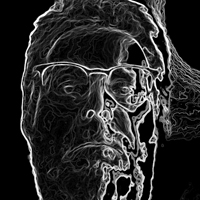
Tetman Callis is a writer living in Chicago. His short fictions have been published in various magazines, including NOON, New York Tyrant, Wigleaf, Atticus Review, The Gravity of the Thing, Queen Mob’s Tea House, and Neon Literary Magazine. His short fiction, “Grilled Cheese Sandwich with Pickles and Fries,” appeared in the Winter 2010 issue of The Writing Disorder. He is the author of the memoir, High Street: Lawyers, Guns & Money in a Stoner’s New Mexico (Outpost 19, 2012), and the children’s book, Franny & Toby (Silky Oak Press, 2015). His website is www.tetmancallis.com.






 Donna Vitucci’s stories, poems, and creative non-fiction have been published in print and online since 1990. Her novels IN EUPHORIA, SALT OF PATRIOTS and AT BOBBY TRIVETTE’S GRAVE are 5-star-reviewed. Her most recent novel, ALL SOULS, along with the others, is available through Magic Masterminds Press. A Midwestern girl, she has relocated to the North Carolina piedmont, where she enjoys gardening, reading, walking and yoga.
Donna Vitucci’s stories, poems, and creative non-fiction have been published in print and online since 1990. Her novels IN EUPHORIA, SALT OF PATRIOTS and AT BOBBY TRIVETTE’S GRAVE are 5-star-reviewed. Her most recent novel, ALL SOULS, along with the others, is available through Magic Masterminds Press. A Midwestern girl, she has relocated to the North Carolina piedmont, where she enjoys gardening, reading, walking and yoga.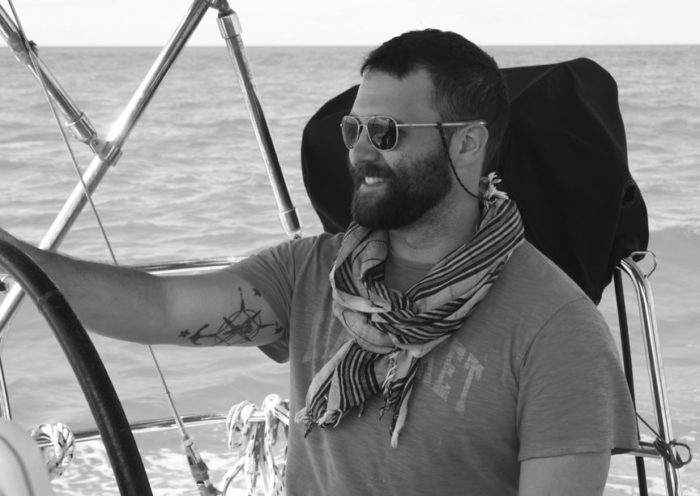
 Paul D. Mooney is an NYC born writer with pieces published in American Writers Review, The Big Jewel, three minute plastic, Task & Purpose, and more. You can see more of his work on his website,
Paul D. Mooney is an NYC born writer with pieces published in American Writers Review, The Big Jewel, three minute plastic, Task & Purpose, and more. You can see more of his work on his website, 
 Leslie Boudreaux Tidwell is a native of Lafayette, LA and lives there with her husband, Jake. When she is not teaching third graders or performing in one of her improv troupes, Leslie spends her private time writing and submitting short stories. In the 2019 NYC Midnight Short Story Challenge, she was awarded Honorable Mention for her crime caper, “Jane the Brain.” In her classroom, Leslie prioritizes writing instruction and aims to mold a new generation of authors who are excited to share their work with the world.
Leslie Boudreaux Tidwell is a native of Lafayette, LA and lives there with her husband, Jake. When she is not teaching third graders or performing in one of her improv troupes, Leslie spends her private time writing and submitting short stories. In the 2019 NYC Midnight Short Story Challenge, she was awarded Honorable Mention for her crime caper, “Jane the Brain.” In her classroom, Leslie prioritizes writing instruction and aims to mold a new generation of authors who are excited to share their work with the world.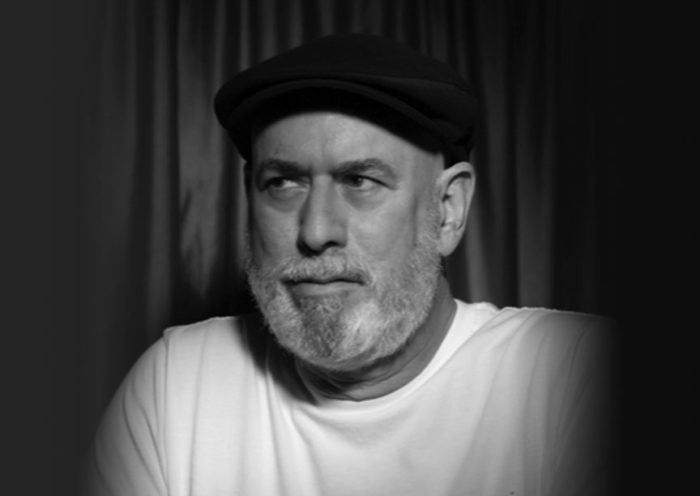
 Mark Tulin is a former family therapist who lives in Santa Barbara, California. He has a poetry chapbook, Magical Yogis, published by Prolific Press (2017), and he has an upcoming book of short stories entitled, The Asthmatic Kid and Other Stories. His stories and poetry have appeared in Fiction on the Web, smokebox, Friday Flash Fiction, Amethyst Magazine, Leaves of Ink, Vita Brevis, among others. His website is Crow On The Wire <
Mark Tulin is a former family therapist who lives in Santa Barbara, California. He has a poetry chapbook, Magical Yogis, published by Prolific Press (2017), and he has an upcoming book of short stories entitled, The Asthmatic Kid and Other Stories. His stories and poetry have appeared in Fiction on the Web, smokebox, Friday Flash Fiction, Amethyst Magazine, Leaves of Ink, Vita Brevis, among others. His website is Crow On The Wire <
 Mateusz found out very early on that there’s a boundless amount of ideas floating just above his head at any given moment. The tricky part was always to pluck one at the right time and gift it with a form it truly deserved. Mateusz works in creative fields as a designer out of Central Europe, and revisits the writing outlet whenever he gets restless.
Mateusz found out very early on that there’s a boundless amount of ideas floating just above his head at any given moment. The tricky part was always to pluck one at the right time and gift it with a form it truly deserved. Mateusz works in creative fields as a designer out of Central Europe, and revisits the writing outlet whenever he gets restless.
 Cecilia Kennedy earned a doctorate in Spanish literature and taught English and Spanish for 20 years in Ohio before moving to the Greater Seattle area with her husband, teenage son, and cat. In 2017, she began writing fiction for the first time. Since then, about sixteen of her short stories have appeared in eleven different literary journals/magazines online and in print. She also has a blog called “Fixin’ Leaks and Leeks,” where she chronicles her humorous attempts at cooking and home repair. (
Cecilia Kennedy earned a doctorate in Spanish literature and taught English and Spanish for 20 years in Ohio before moving to the Greater Seattle area with her husband, teenage son, and cat. In 2017, she began writing fiction for the first time. Since then, about sixteen of her short stories have appeared in eleven different literary journals/magazines online and in print. She also has a blog called “Fixin’ Leaks and Leeks,” where she chronicles her humorous attempts at cooking and home repair. (
 Norbert Kovacs lives and writes in Hartford, Connecticut. His stories have appeared in Westview, Gravel, STORGY, Corvus Review, and The Write Launch. Norbert’s website is
Norbert Kovacs lives and writes in Hartford, Connecticut. His stories have appeared in Westview, Gravel, STORGY, Corvus Review, and The Write Launch. Norbert’s website is 
 Victoria Forester’s writing has appeared in or is forthcoming from various literary journals, including Washington Square Review, Spectrum Literary Journal, Funicular Magazine, and Moonchild Magazine. She recently became a doctor, but can only prescribe one insanely powerful sleeping pill in the form of a 300-page dissertation. Follow her on Twitter @DoveVictoria and Instagram @victoria.forester.
Victoria Forester’s writing has appeared in or is forthcoming from various literary journals, including Washington Square Review, Spectrum Literary Journal, Funicular Magazine, and Moonchild Magazine. She recently became a doctor, but can only prescribe one insanely powerful sleeping pill in the form of a 300-page dissertation. Follow her on Twitter @DoveVictoria and Instagram @victoria.forester.
 Paul Rosenblatt is a retired professor who grew up in Chicago and lives in Minnesota. As an academic he has published 14 books and more than 200 journal articles and chapters in edited books. As a beginning writer of literary works he has pieces coming out in Streetlight Magazine, Avatar Review, and an edited book of writings.
Paul Rosenblatt is a retired professor who grew up in Chicago and lives in Minnesota. As an academic he has published 14 books and more than 200 journal articles and chapters in edited books. As a beginning writer of literary works he has pieces coming out in Streetlight Magazine, Avatar Review, and an edited book of writings.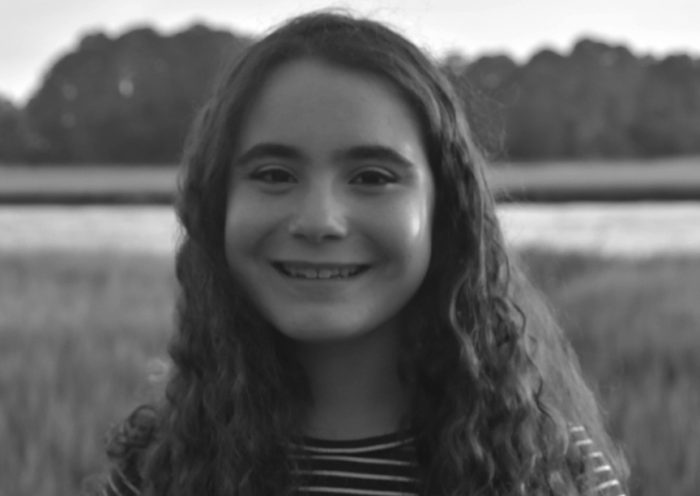
 Rina Sclove is currently a junior in high school at Princeton Day School. She lives in Princeton, NJ with her parents, two sisters, and beloved fish, Algae-Won Kenobi. She has previously had work published in Canvas Literary Journal and Adelaide Literary Magazine and hopes to become an author someday!
Rina Sclove is currently a junior in high school at Princeton Day School. She lives in Princeton, NJ with her parents, two sisters, and beloved fish, Algae-Won Kenobi. She has previously had work published in Canvas Literary Journal and Adelaide Literary Magazine and hopes to become an author someday!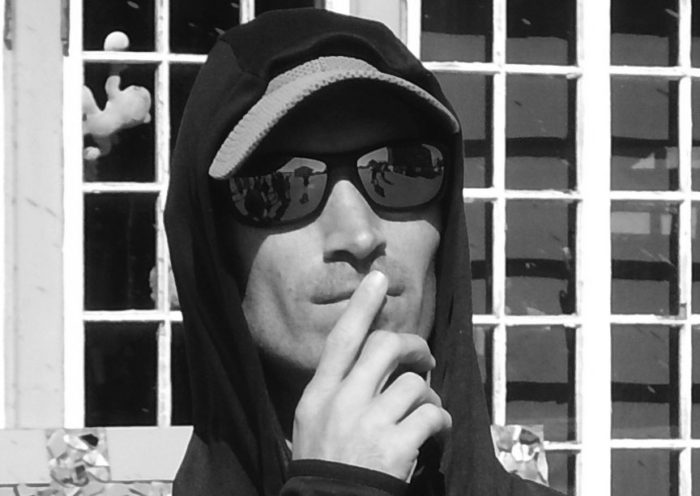
 Douglas J. Ogurek is the pseudonym for a writer living somewhere on Earth. Though banned on Mars, his fiction appears in over fifty Earth publications. Ogurek founded the controversial literary subgenre known as unsplatterpunk, which uses splatterpunk conventions (e.g., extreme violence, gore, taboo subject matter) to deliver a positive message. He guest-edited Theaker’s Quarterly Fiction’s UNSPLATTERPUNK! and UNSPLATTERPUNK! 2 anthologies. Ogurek reviews films at that same magazine. Recent longer works include the young adult novel Branch Turner vs the Currants (World Castle Publishing) and the horror/suspense novella Encounter at an Abandoned Church (Scarlet Leaf Publishing). More at
Douglas J. Ogurek is the pseudonym for a writer living somewhere on Earth. Though banned on Mars, his fiction appears in over fifty Earth publications. Ogurek founded the controversial literary subgenre known as unsplatterpunk, which uses splatterpunk conventions (e.g., extreme violence, gore, taboo subject matter) to deliver a positive message. He guest-edited Theaker’s Quarterly Fiction’s UNSPLATTERPUNK! and UNSPLATTERPUNK! 2 anthologies. Ogurek reviews films at that same magazine. Recent longer works include the young adult novel Branch Turner vs the Currants (World Castle Publishing) and the horror/suspense novella Encounter at an Abandoned Church (Scarlet Leaf Publishing). More at 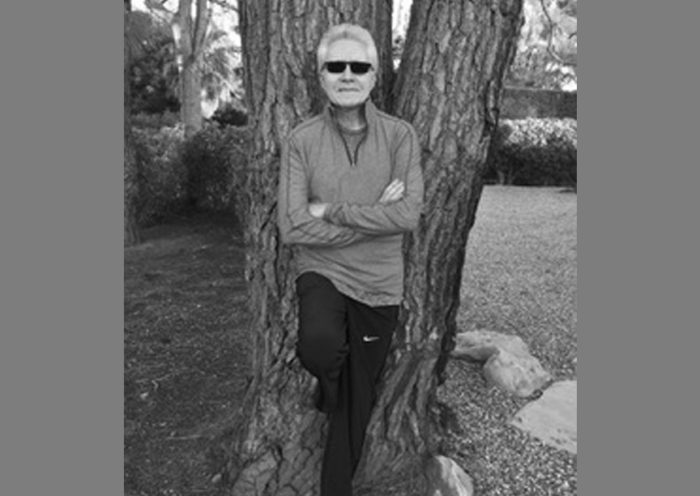
 Vincent Barry’s affection for creative writing is rooted in the theatre. After a stint with the Peace Corps more years ago than he prefers to remember, Barry’s one-act plays caught the attention of the late Arthur Ballet at the University of Minnesota’s Office for Advanced Drama Research and Wynn Handman at New York’s The American Place Theatre. Some productions followed, as well as a residency at The Edward Albee Foundation on Long Island. Meanwhile, Barry was teaching philosophy at Bakersfield College and authoring textbooks. Now retired from teaching, Barry has returned to his first love, fiction. His stories have appeared in numerous publications in the U.S. and abroad. Barry lives with his wife and daughter in Santa Barbara.
Vincent Barry’s affection for creative writing is rooted in the theatre. After a stint with the Peace Corps more years ago than he prefers to remember, Barry’s one-act plays caught the attention of the late Arthur Ballet at the University of Minnesota’s Office for Advanced Drama Research and Wynn Handman at New York’s The American Place Theatre. Some productions followed, as well as a residency at The Edward Albee Foundation on Long Island. Meanwhile, Barry was teaching philosophy at Bakersfield College and authoring textbooks. Now retired from teaching, Barry has returned to his first love, fiction. His stories have appeared in numerous publications in the U.S. and abroad. Barry lives with his wife and daughter in Santa Barbara.
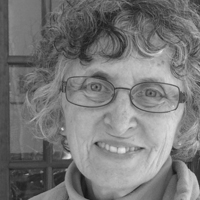 Carolyn Geduld is a mental health professional in Bloomington, Indiana. Her fiction has appeared in Pennsylvania Literary Journal, Not Your Mother’s Breastmilk, Dime Store Review, Dual Coast, Otherwise Engaged, and others.
Carolyn Geduld is a mental health professional in Bloomington, Indiana. Her fiction has appeared in Pennsylvania Literary Journal, Not Your Mother’s Breastmilk, Dime Store Review, Dual Coast, Otherwise Engaged, and others.

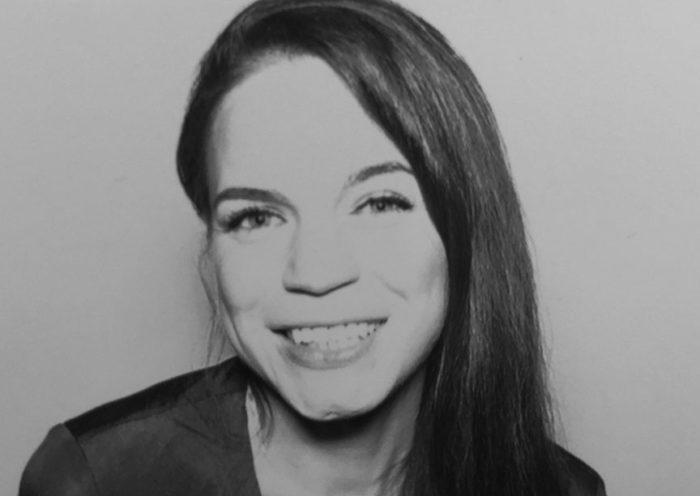
 Anna Linetskaya is an emerging writer who, after years of academic work and legal practice, finally finds herself writing pieces she truly enjoys. She is currently working on her first novel while completing her MFA in Creative Writing at the City College of New York. When not working on her book, Anna is sure to be found reading books of others. She is unapologetic about her reading locations and is particularly proud of her reading-while-walking skill. Her most recent publication, “myLife: a Story,” appeared as a series of installments in Visitant.
Anna Linetskaya is an emerging writer who, after years of academic work and legal practice, finally finds herself writing pieces she truly enjoys. She is currently working on her first novel while completing her MFA in Creative Writing at the City College of New York. When not working on her book, Anna is sure to be found reading books of others. She is unapologetic about her reading locations and is particularly proud of her reading-while-walking skill. Her most recent publication, “myLife: a Story,” appeared as a series of installments in Visitant.
 Priscilla Mainardi attended the University of Pennsylvania and Rutgers University, where she earned an MFA in creative writing. Her work appears in numerous journals, including Pulse – Voices from the Heart of Medicine, the Examined Life Journal, and BioStories. She teaches writing at Rutgers University in Newark, New Jersey and serves on the editorial board of the online journal, The Intima.
Priscilla Mainardi attended the University of Pennsylvania and Rutgers University, where she earned an MFA in creative writing. Her work appears in numerous journals, including Pulse – Voices from the Heart of Medicine, the Examined Life Journal, and BioStories. She teaches writing at Rutgers University in Newark, New Jersey and serves on the editorial board of the online journal, The Intima.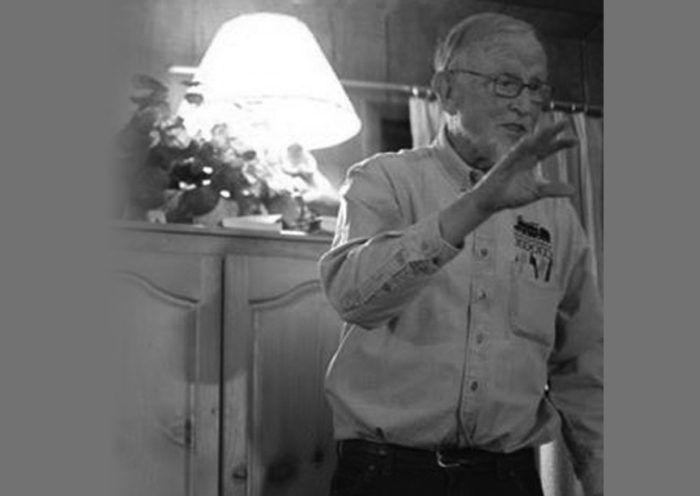
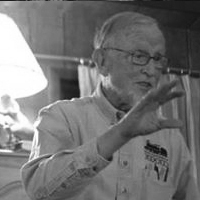 James R. Kincaid has published about forty stories and some novels: A History of the African-American People by Strom Thurmond (co-authored with Percival Everett), Lost, You Must Remember This, Wendell and Tyler (a new adult trilogy), Just Wally and Me, and Chasing Nightmares, along with a collection of short stories and a play, “The Court-Martial of Lt. Calley.” He has taught at Ohio State, Colorado, Berkeley, Southern Cal, and is now at Pitt.
James R. Kincaid has published about forty stories and some novels: A History of the African-American People by Strom Thurmond (co-authored with Percival Everett), Lost, You Must Remember This, Wendell and Tyler (a new adult trilogy), Just Wally and Me, and Chasing Nightmares, along with a collection of short stories and a play, “The Court-Martial of Lt. Calley.” He has taught at Ohio State, Colorado, Berkeley, Southern Cal, and is now at Pitt.
 Annie Blake is an Australian writer and divergent thinker. She is a wife and mother of five children. She started school as an EAL student and was raised and, continues to live in a multicultural and industrial location in the West of Melbourne. Her research aims to exfoliate branches of psychoanalysis and metaphysics. She is currently focusing on in medias res and arthouse writing. She enjoys semiotics and exploring the surreal and phantasmagorical nature of unconscious material. Her works are best understood when interpreting them like dreams. She is a member of the C G Jung Society of Melbourne. You can visit her on
Annie Blake is an Australian writer and divergent thinker. She is a wife and mother of five children. She started school as an EAL student and was raised and, continues to live in a multicultural and industrial location in the West of Melbourne. Her research aims to exfoliate branches of psychoanalysis and metaphysics. She is currently focusing on in medias res and arthouse writing. She enjoys semiotics and exploring the surreal and phantasmagorical nature of unconscious material. Her works are best understood when interpreting them like dreams. She is a member of the C G Jung Society of Melbourne. You can visit her on 











